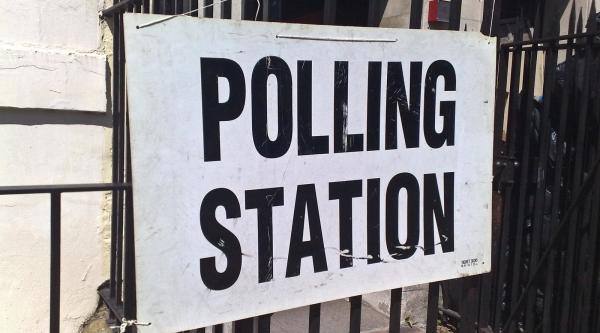Financial assessment for care in Wales
To help decide who will pay for care, the local authority will carry out a financial assessment. The financial assessment rules for homecare are different to the rules for a residential care home.
- Paying for dementia care in Wales
- You are here: Financial assessment for care in Wales
- Paying for care home fees in Wales
- Paying for dementia care if you have a partner
- Do you have to sell your home to pay for care in Wales?
What happens during a financial assessment?
The person with dementia will be asked to complete some forms about their finances. Someone from the local authority may be able to visit to help the person fill in the forms.
In Wales, the person with dementia will have to fill in the details for two things in these forms:
- Income – this refers to any money the person receives regularly. For example, this could be a pension. It can also include benefits such as Universal credit or the Guarantee credit element of Pension credit. It doesn’t include any money the person earns if they are working.
- Capital – this refers to any other assets the person has. This includes savings and investments, such as stocks and shares. In some cases, it includes the value of the person’s home (for example, when paying for care home fees). It does not include personal possessions, such as jewellery.
Living in England or Northern Ireland?
This information is for people living in Wales. Financial assessments work in slightly different ways for care in England and for care in Northern Ireland. Please see our information for these countries.
The person may lack the mental capacity to take part in this process. The local authority will then need to find out if there is anyone who has the appropriate authority to be involved in the person’s financial affairs. This could be an attorney under a Lasting or Enduring power of attorney, or a deputy.
If there is no such person, then a family member or the local authority may need to apply to become the person’s deputy.
How local authorities conduct assessments
It can feel like an invasion of privacy when the local authority are looking into a person’s finances. However, it is important to make sure that the person is charged the right amount for their care. The person could be charged the full amount if they refuse to answer the financial questions.
If they lack the mental capacity to take part, they should not be penalised for that. The local authority should be working with an attorney or deputy instead.
Based on the information in these forms, the local authority will decide what to include in the person’s financial assessment. For each type of capital and source of income the person has, the local authority will either:
- Fully take it into account (known as ‘available’ capital
or income) - Partially take it into account
- Ignore it completely (known as ‘fully disregarding’ it).
For example, some benefits like the Personal independence payment (PIP) mobility component will be fully disregarded and not expected to contribute to care costs. Whereas other benefits can be fully or partially taken into account and expected to contribute to care costs. You can find more information on how benefits are assessed below.
Paying for homecare
Some people’s care needs can be met at home. If so, they will be financially assessed according to the rules for homecare.
The limits listed in the following sections are accurate as of 2024 but may change in the future. Some local authorities may be more generous. Ask to see the local authority’s charging policy.
Paying for residential care
Some people’s care needs will be met in a care home. These people will be financially assessed according to the rules for permanent residential care. Unlike homecare, there is no maximum weekly charge for permanent residential care.
The capital limit for permanent residential care in Wales is currently £50,000 (2024 rate).
If the person has more than £50,000 in available capital, they will pay all of their own residential care costs. This is often known as being a self-funder.
If the person has less than £50,000 in available capital, they will not pay any of their care home fees out of their capital. Capital below £50,000 is ignored in the financial assessment. They will still usually pay an assessed contribution from their income. This includes income such as State pension and most benefits.
If a person is contributing to their care home fees, which most people will, they must be left with a minimum amount of money for themselves each week. This is called the Minimum income amount (MIA). The MIA for residential care is less than the MIA for homecare. This is because a lot of the resident’s living costs are covered by their care home fees.
In Wales, the MIA rate for residential care is £44.65 per week (2025/26 rate).
The person with dementia can spend this money as they wish. It is not a benefit, but the person’s own income, made available to them. This can be used for anything they choose, such as newspapers, haircuts or clothing.
There are some circumstances where the local authority increase the MIA. For example, this may happen if the person has an occupational pension being paid to them. They can keep half of this income to pass back to their spouse or civil partner who is still at home. The local authority must allow this.
The local authority must consider increasing the MIA for other reasons too. For example, the local authority may need to do this to cover some housing costs where the person’s property is disregarded in the financial assessment.
Local authorities provide some respite care free of charge. If they do charge, it is the person with dementia who is financially assessed. This is true even if it is the carer who needs the break.
Respite care may be provided in a care home. In this case, it will still be subject to the maximum weekly charge if the person with dementia is classed as a short-term resident.
This usually means their stay will be shorter than eight weeks.
Are benefits counted in the financial assessment?
If the person is receiving homecare
If the person is receiving care at home, the local authority will fully or partially include the following benefits as income:
- Severe disability premium
- Disability living allowance – daily living component
- Personal independence payment – daily living component
- Attendance allowance.
If someone is assessed as needing a service during the day, the local authority should not count benefits received for care at night. For example, a person may receive higher-rate Attendance allowance for supervision at night. In this case, the local authority shouldn’t include this extra money in the financial assessment if they only provide support during the day.
Learn more about benefits for people affected by dementia.
If the person is in a care home
If the person is receiving care in a care home, the financial assessment will include most benefits. This includes those often claimed by people living with dementia. This might be Pension credit or Universal credit.
Some benefits must not be taken into account in the financial assessment for care. This includes the mobility part of both Disability living allowance and Personal independence payment.
Some other benefits, such as the War widow’s pension, should only be partially counted.
If the person is receiving care in a care home, their benefits may be affected. This will depend on who is paying the care home fees:
- If the person is a self-funder and is paying for their care costs in full, they can still receive some benefits. This includes Attendance allowance or Personal independence payment daily living component. These can help towards paying care home fees.
- If the local authority are contributing towards the care fees, any benefits the person continues to receive will go towards the cost of care. This includes their State pension, or any benefits they claim as an income replacement. In these cases, the person must be left with their MIA rate for residential care. If someone receives funding help with care home fees, some benefits usually stop being paid after 28 days. An example would be Attendance allowance.
The Department for Work and Pensions (DWP) should be informed of any stays in care homes or hospitals to ensure there are no overpayments.
It may help to arrange a full benefits check. Advicelink Cymru or Age Cymru can also explain what financial help is available. The person’s carer may also find this useful, such as to discuss protecting their pension rights.








In Wales, there is a maximum weekly charge for homecare. The current maximum weekly charge is £100 per week. This means that nobody should be charged more than £100 per week for their care at home. This includes care packages offering support with daily activities such as washing and dressing, day centres and most types of respite.
Some people will be charged less if their care costs less. For example, if the care only costs £30, that is the maximum charge the local authority can ask for.
A person will also be charged less if they have less than the capital limit for homecare and limited income. The capital limit for homecare in Wales is currently £24,000 (2024 rate).
If the person has more than £24,000 in available capital, they can be asked to pay for their own homecare. This will only be up to the maximum weekly charge amount. Their homecare may cost more than the maximum weekly charge. In this case, the local authority will contribute and cover any costs above this.
If the person has less than £24,000 in available capital, their capital will not be included in the financial assessment. The local authority will only consider their ability to pay for care using their income. The local authority must ensure the person keeps enough income to pay for their living costs. This is known as their Minimum income amount (MIA).
The MIA is the minimum amount of income the person must be left with each week. The amount is different for homecare and residential care.
The MIA for homecare is designed to be enough income to pay for living costs. These may include rent, food and utilities. The MIA only comes into effect if a person has less than the capital limit for homecare. This limit is currently £24,000.
The MIA is made up of three parts:
— single or in a couple
— over or under State pension age
— a carer or living with a disability.
If someone claims Pension credit guarantee credit, the basic entitlement will be the amount they get from that.
The person will always be allowed to keep this amount of protected income. This is income that can’t be used to pay for care costs.
They may be able to keep more in some circumstances. For example, this may happen if they have higher disability-related expenditure (DRE) costs. They should speak to their local authority to find out more about these circumstances.
If a person’s income is less than their MIA, they should not be charged for care at home. If a person’s income is over their MIA limit, they can be asked to contribute the amount that goes over the limit. However, they won’t pay more than the maximum weekly charge.
Local authorities may charge a set amount for low-level, low-cost care and support services. This is called a flat rate charge. These services are usually to help people with ordinary day-to-day living, such as meals or laundry costs.
Local authorities are not under a duty to carry out financial assessments for services charged at a flat rate. However, if a person raises concerns about affording flat rate charges, the local authority must carry out a financial assessment.
Other people may be charged flat rate charges as well as their assessed contribution for their homecare. These services do not come under the maximum weekly charge. If all these charges are unaffordable when added together, speak to the local authority. They may take this into account and leave the person with a higher MIA.
If homecare is being funded by the local authority, a person can choose to receive this funding in the form of a direct payment. A direct payment is money that a local authority gives to someone to spend on meeting their own eligible care and support needs.
The money can be spent on a wide range of products and services, and is intended to give greater choice and control over how eligible needs are met.
For more information, ask the local authority.